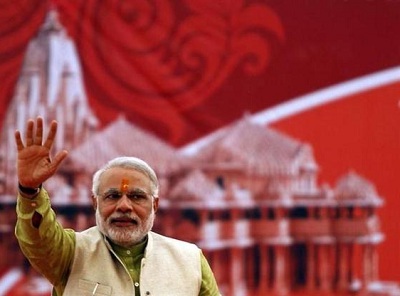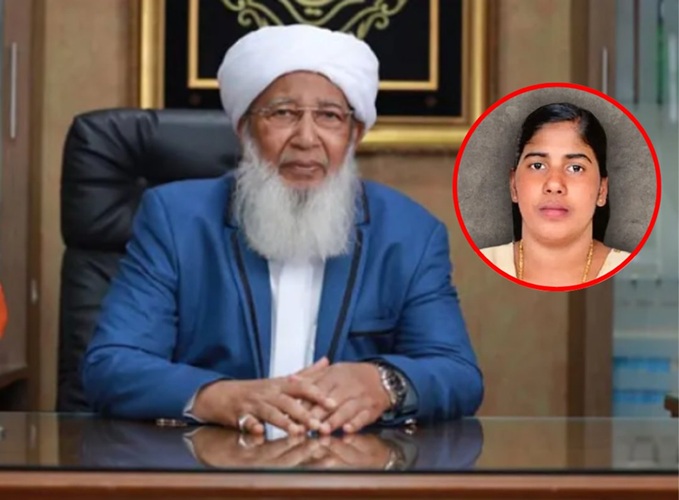Sustained recovery will be far more challenging and time-consuming
New Delhi: Indian shares have soared on hopes newly elected leader Narendra Modi can revive a slumping economy, but analysts warn impossible expectations are riding on the right-winger’s free-market “Modinomics”.
His Hindu nationalist Bharatiya Janata Party (BJP), which ousted the left-leaning Congress with the best results in 30 years, will take power with India’s economy growing at its lowest rate in a decade.
The chief minister of prosperous Gujarat state criss-crossed India in what the media called a “shock and awe” campaign, pledging faster growth, new infrastructure and more jobs to employ a mushrooming young workforce.
But the promises of the 63-year-old barrel-chested leader have also stirred cynicism even as foreign investors have poured billions into local financial markets.
“Indian politicians promise the earth to get elected,” said economist Rajeev Malik from the CLSA investment bank.
Analysts warn it would be simplistic to believe Modi can quickly transform India, but the PM-in-waiting fed optimism on Friday by saying he could make the 21st century “India’s century” within 10 years.
“There’s no magic wand,” warned D.K. Joshi, chief economist of credit rating agency Crisil.
For a start, India is gripped by stagflation — growth has crashed to 4.9 per cent from nine per cent two years ago and consumer inflation is at a wage-eroding 8.6 per cent, the highest among top emerging economies.
For another, there are still a number of no-go areas in India’s economy such as its inflexible hire-and-fire labour laws which discourage employers from taking on new workers.
Infrastructure needed to underpin the industrialisation process is poor in large parts of the country and a new land acquisition law has further complicated the process of buying space for new factories.
Arun Jaitley, who is tipped to be finance minister, told a small group of foreign reporters last month that there was little prospect of early reforms of the labour market or any major rollback of pro-poor welfare programmes.
Reform reversals
For all his reform talk and the first parliamentary majority for a single party since 1984, Modi will have to contend with entrenched resistance to radical change in many quarters which could disappoint foreign companies eyeing new opportunities.
In India, and within the BJP, there remains a strong protectionist movement, resistant to opening up the still inward-looking economy to outsiders.
While the BJP promises a welcome mat to foreign investors in defence and infrastructure, the party is against a previous reform by the left-leaning Congress government to open the retail sector to foreign supermarkets.
Also, in his fiefdom of Gujarat, he was able to centralise control and browbeat India’s notoriously slow bureaucrats. As a national leader, he will need to build consensus, analysts say.
One huge advantage is that he will not have to deal with unruly coalition partners, but state governments will be key to making real changes on the ground.
JP Morgan’s India economist Sajjid Chinoy warned against overly high expectations, noting that under India’s federal system “75 to 80 per cent of the problems on the ground are outside the direct jurisdiction of the central government”.
“Some shovel-ready projects could be implemented which could produce a growth pop for a quarter or two,” he said. “But a more sustained recovery will be far more challenging and time-consuming.”
Also, although Gujarat’s expansion outdistanced the India-wide average in 11 of the past dozen years, some economists say the achievement may not be all that impressive in a state known for its spirited entrepreneurs long before Modi arrived.
Many global investment houses predict growth of just 5.5 per cent in 2014-15, rising to around to 6.5 per cent the next year, but these forecasts might now be revised upwards.
‘Breath of fresh air’ —
Still, the “Modi-economics” mantra of “minimum government, maximum governance” marks a watershed departure from the socialist course set by India’s first premier Jawaharlal Nehru after independence from Britain.
India-born Jagdish Bhagwati, a professor at Columbia University in New York, praises the BJP leader’s aim of reducing government’s role as a “breath of fresh air”.
Sen, who also teaches at Britain’s Cambridge University, says the country is at a critical fork in the road.
“For now, election euphoria is the order of the day”, said Miguel Chanco, an analyst from Capital Economics.
But markets can lose patience quickly and if the new government fails to impress rapidly, “investor optimism could soon turn to more widespread investor disillusion”, drying up foreign inflows, Chanco cautioned.
Source: AFP






0 Comments